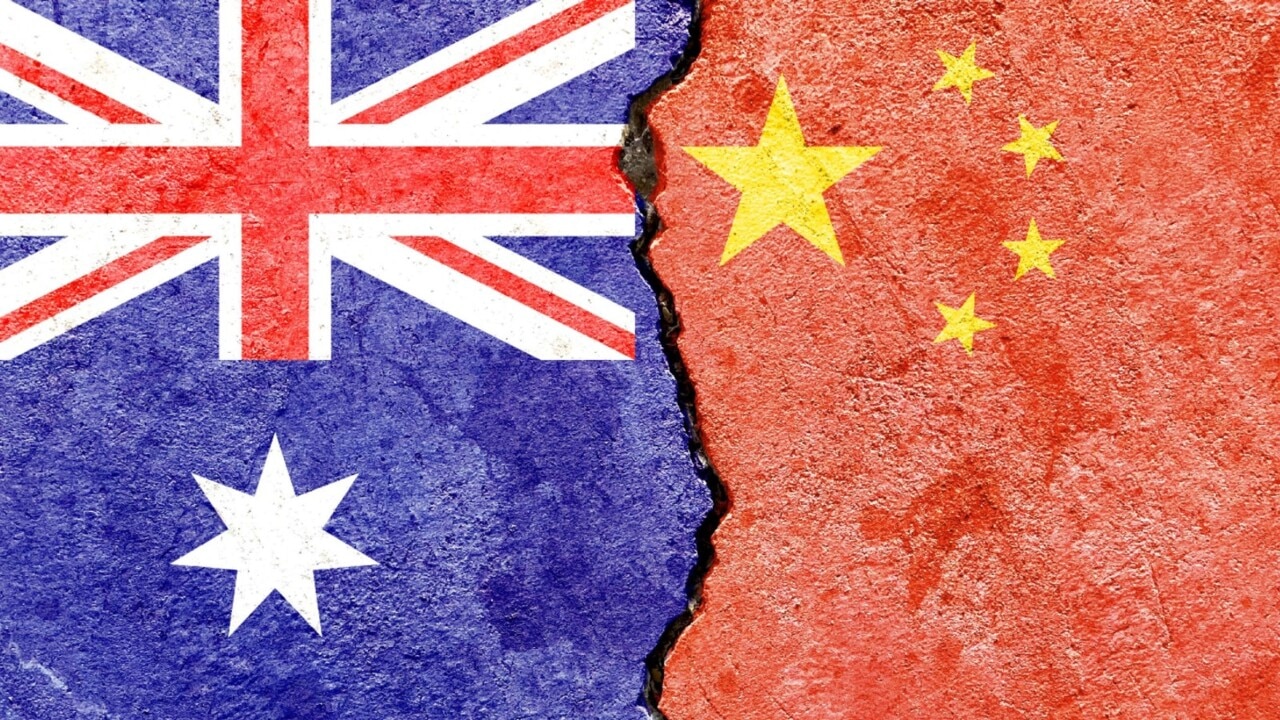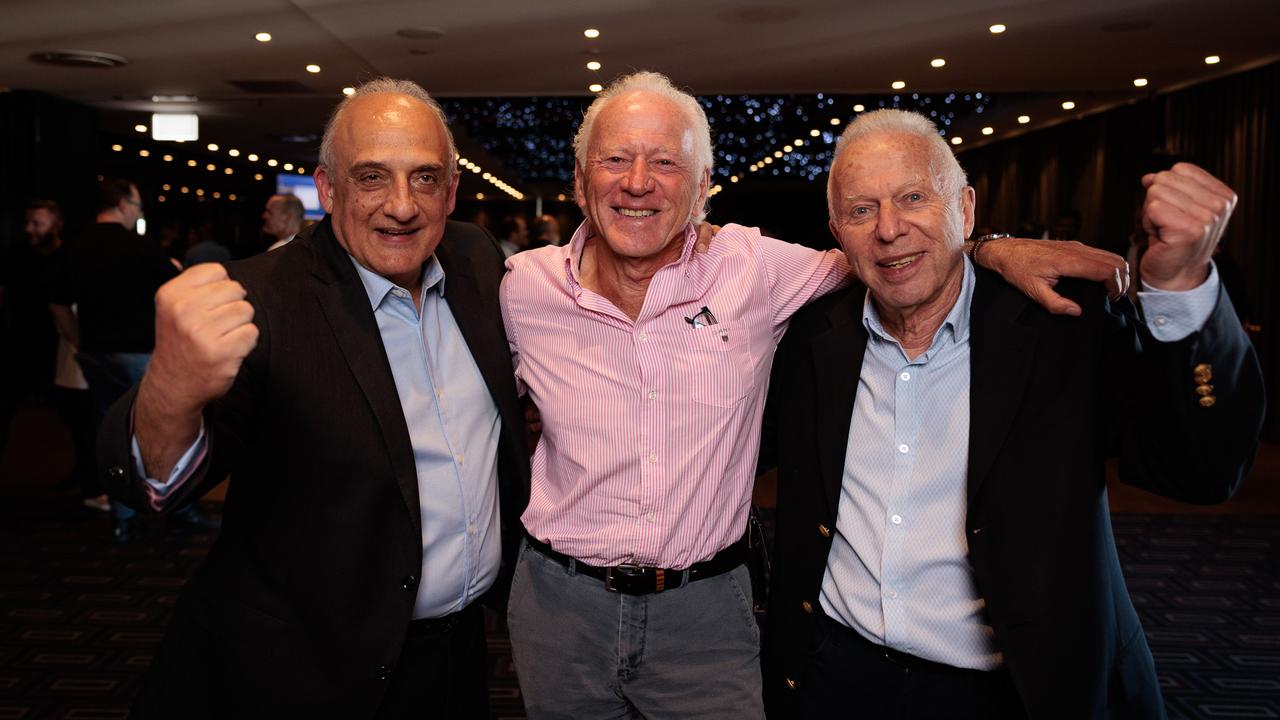Chinese consumers keen to buy Australian as improving ties spark renewed interest
The improvement in Australia’s political relationship with China since the election of the Albanese government has sparked renewed interest from Chinese consumers in Australian products.

Chinese consumers are looking to healthcare products from Australia as the country emerges from its Covid-19 lockdowns, according to William Zhao, chief executive of marketing consultants Yaru Ventures.
Shanghai born Zhao, a former chief executive of Metcash China — whose consultancy advises companies on expanding into Asia, including those wanting to sell on e-commerce giant Alibaba — said improving political ties between Australia and China had seen an increase in interest from Chinese buyers in Australian products.
He said Covid-19 had also meant China consumers were increasingly concerned about their health, wanting to buy goods from Australia such as nutraceuticals, vitamins, and Panadol.
“The health category will grow enormously as China comes out of Covid,” he said.
“The trend towards a healthier lifestyle will accelerate. People want to become healthier and build up their immunity and they see Australia as a good place to buy from.
“They see the role of the Therapeutic Goods Administration in setting standards. It is well regarded.”
Born in China but educated in Australia, Mr Zhao worked in Hong Kong from 2010 and moved to Shanghai from 2016, where he ran Metcash’s China operations.
He returned to Australia in early 2020 after Covid broke out.
Unable to return to China because of lockdowns, he founded Yaru Ventures in September 2020 in Sydney as a consultancy for Australian companies wanting to access China and other markets in Asia.
Earlier this year Yaru Ventures was appointed as the official partner of Alibaba.com in Australia, a business to business website which helps Australian wholesalers sell offshore including to China.
Mr Zhao said the improvement in Australia’s political relationship with China, following the election of the Albanese government in May, had seen a renewed interest in Australia from Chinese companies.
He said businesses on both sides were closely watching improving ties, including Prime Minister Albanese’s meeting with President Xi Jinping in Bali in November and Foreign Minister Penny Wong’s meetings with Chinese Foreign Minister Wang Yi, including her trip to Beijing in December.
The Federal Trade Minister Senator Don Farrell is also expected to travel to China in early 2023 to meet with his counterpart, a meeting which is seen as paving the way for the resolution of disputes which have affected some $20bn in Australian exports to China including wine, barley, beef, coal, seafood and timber.
“The change in the relationship really helped,” Mr Zhao said. “We are seeing Chinese state-owned enterprises engaging a lot more with Australian businesses.
“We are seeing a lot more demand out of China.”
At the same time, he said there were an increasing number of Australian companies looking to export to China.
“We are getting a lot of inquiries from people who want to position themselves for the next phase of growth in China.”
Between 400 and 500 people attended an advisory day in Sydney hosted by Alibaba in late November to learn how to access the China market using Alibaba platforms and another 800 people listened in online.
“There is a lot of demand,” he said. “Australian businesses are looking for new avenues to grow.”
But he warned that Australian companies wanting to sell to China as it reopens faced stiff competition as other businesses around the world.
He said companies in Europe in particular, where economies were in recession, were looking closely at the China market.
His consultancy was also getting calls from businesses in Europe, who had known him during his time in Shanghai.
“They are wanting to get into China in a big way,” he said. “Because Europe is going through a recession, they are not being able to sell as well locally in their own markets.
“They are looking to get into China but also into South East Asia. Competition has become more fierce.”
He said European companies were often prepared to spend more money in getting established in the China market than Australian companies.
Meanwhile, Australian companies had also been “spoiled” in the past by the rapid development of the daigou or personal shopper market of Chinese students and tourists buying products in Australia and selling them to friends and family in China, he said.
While this worked well for many years, the old individual daigou market in Australia has all but disappeared, replaced by more professional wholesalers who can negotiate deals to buy goods such as infant formula from Australia to sell to China.
But Mr Zhao said the corporatised daigou were also demanding more marketing support from their suppliers in Australia.
“The daigou market is still happening but not to the extent it was a few years ago,” he said.
“Covid was a big factor, but even before that the Australian tax authorities were cracking down on it and sharing tax information across the world and Chinese authorities were cracking down on it because they were worried about fake products coming through these channels.”
“The corporatised daigou have become proper distribution channels but they require proper distribution support and brand building and strategy.”
He said this also meant Australian companies looking to sell to China were looking at ways to sell through established channels “rather than just going through the daigou trade with one-off shipments.”
“More Australian companies are wanting to establish themselves properly in China, getting ready for the oncoming wave of demand.”
Mr Zhao said Australians often did not appreciate the speed at which things could change in China.
He said the announcement that China would begin opening up from January 8, with Covid officially downgraded as a concern, was unleashing a lot of pent-up demand from Chinese consumers.
“If you look at WeChat, people are now talking about going out and buying new goods and looking at taking holidays.”
He said this would become more obvious in the second half of the year when he expected the Chinese economy to pick up strongly.
“All the signals are positive,” he said, although “there could be some short-term pain with Covid getting worse.”
But he said there was a general tone in China of wanting to reopen and “welcome everybody back.”
“A lot of Chinese clients are wanting to talk to us.
“Now the relationship is warming up, they want to talk about how we can move forward and plan for the second half of next year.”



